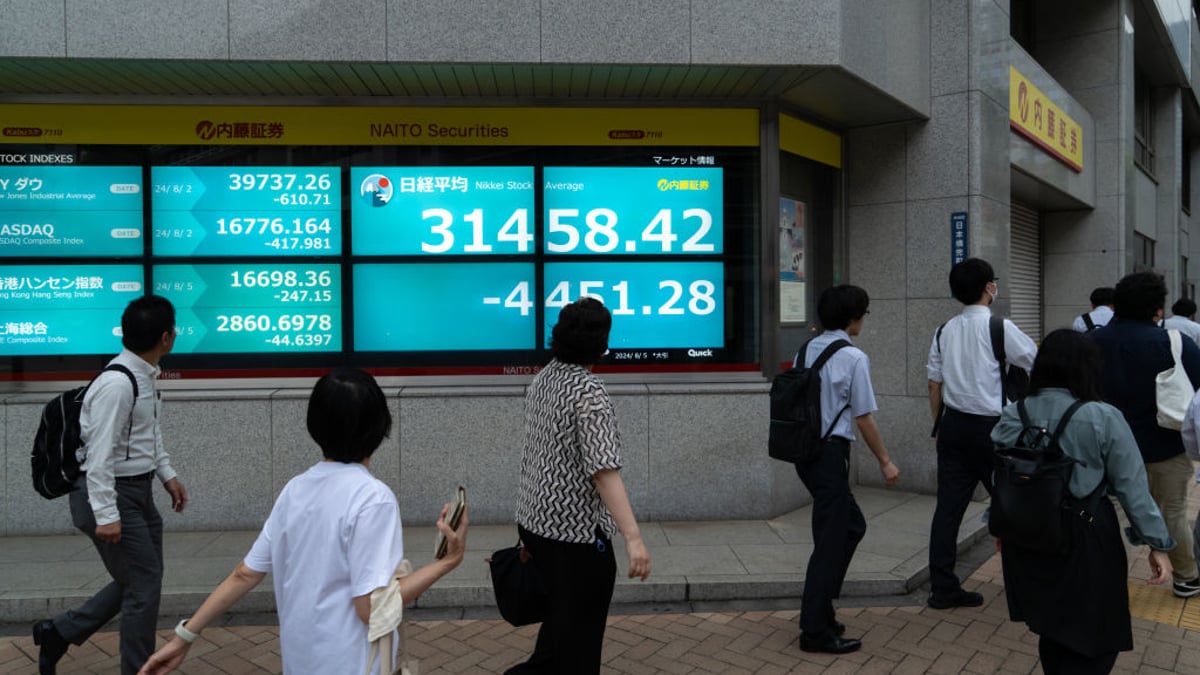Japan has long been seen as a safe place to invest, but the yen is currently facing serious uncertainty, with many believing a stock market crash is on the way.
On Monday Aug. 5, stock prices collapsed in the Eastern nation, sending shockwaves through Tokyo. Of course, national economies are intricate things that have millions of different inputs, so isolating a singular cause for this sudden drop isn’t feasibly possible. However, there are several factors that can help us to answer why Japanese stocks have faced a bigger drop than we saw during the infamous 1987 Black Monday sell-offs.
The first factor isn’t really Japan’s “fault”: there was a general drop in global stock markets last week. Even though they are famous for their self-sufficiency, Japan’s economy is fully embedded in international trade. So, it is impossible for them to be isolated from global shocks, like we saw a few days ago.
A second big reason for this sudden plunge could involve general economic concerns. Wages are incredibly low for younger people in Japan, and when that’s combined with an aging population and heavily declining birth rate, it means that the economy becomes sluggish. The country also spends over a third of its money on social security programs, which is a number that will only grow larger as more Japanese people reach retirement age. This is a problem that needs to be solved sooner rather than later.
Another factor in this rapid drop is likely to be the unwinding of various investments in Japanese firms that were only taken on because of the yen’s formerly low exchange rate relative to other currencies. Foreign investors saw this disparity in currency values, and thought they could get ahead by investing in Japanese companies, but now many are pulling their funds as they see average or below average returns. This can take the form of selling off assets to fund losses.
We know that the Japanese stock market is in an unhealthy way as the Nikkei share average dropped by 12.5%. This was exacerbated by poor jobs data released by the Japanese government last week, which many fear is a sign of an upcoming recession.
In real terms, this means that in the past month, the Nikkei has seen 113 trillion yen ($792 billion) lost in value. Shunichi Suzuki, the Japanese finance minister, said that “It’s hard to say what is behind the decline in stocks,” and that the government were watching matters unfold with “grave concern.”
What will happen next depends on all sorts of factors, but it’s not looking good for Japan. And, worst of all, we’ll only really be able to analyze why when the painful outcomes are already underway.










Published: Aug 5, 2024 02:52 pm